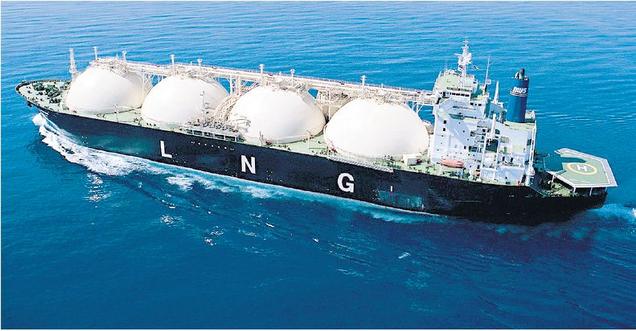LNG & BC’s GHG reduction strategy: Trying to fit a square peg into a round hole
After a three week break, the 3rd session of the 41st parliament resumed today. In question period I quizzed the Premier as to how he could argue that British Columbia would meet its legislated greenhouse gas reduction targets while at the same time developing an LNG industry.
In late February I wrote an extended essay detailing the desperate, fiscally-irresponsible steps that the BC Liberals and subsequently the BC NDP have taken in an attempt to entice major LNG players to BC.
Below I reproduce the video and text of our exchange.
Video of Exchange
Question
A. Weaver: Government has committed to reducing greenhouse gas emissions by 40 percent from 2007 levels by 2030 and 80 percent from 2007 levels by 2050. This is why the government’s continued desperate push for LNG is so problematic.
LNG Canada’s proposed four-train LNG facility would add eight to ten megatonnes of carbon-dioxide-equivalent. That’s more than 50 percent of all of British Columbia’s present industrial emissions. And they’d add that to B.C.’s total emissions.
Our targets are such that by 2050, British Columbia can emit only 12.9 megatonnes of carbon-dioxide-equivalent. And at about 9.6 megatonnes, LNG Canada would yield the single largest source of those emissions. That’s three-quarters of all of British Columbia’s allowable emissions in just one LNG facility.
My question is to the Minister of Environment and Climate Change Strategy. How is it possible for British Columbia to meet its greenhouse gas reduction targets in light of these numbers?
Answer
Hon. J. Horgan: I thank the Leader of the Third Party for his question. I know his passion for climate action and his reason for being in this House is that very issue.
I’m committed, as I said during the election campaign and as I’ve said since forming the government…. We are going to put in place targets by 2030 to see our emissions go down by the 40 percent from what they were in 2007. I’m committed to doing that.
But at the same time, when investors come calling with proposals, it’s appropriate that we talk to them. It’s appropriate that we look at the fiscal framework and we put in place the terms of engagement.
That’s why I’ve said to the LNG community: “If you’re going to employ British Columbians, there’s going to be a fair return to B.C. for access to our resource. You’re going to work with Indigenous people in partnership” — and the member for Skeena can talk to us about that — “And if you’re going to ensure that you assist us in getting to our greenhouse gas objectives, we welcome that investment.”
Supplementary Question
A. Weaver: I do appreciate the response from the Premier. Nevertheless, it seems to me that rhetoric here in B.C. is not dissimilar from what we’re hearing nationally. On the one hand, Prime Minister Trudeau claims we need to build new pipelines and increase oils sands production multifold in order to reduce greenhouse gas emissions. Our government thinks we need to increase industrial emissions by 50 percent in order to meet greenhouse gas reduction targets.
Look, LNG Canada would not build a new LNG facility today just to tear it down tomorrow. A facility will be built to be around for decades to come. That means that for all other aspects of the British Columbia economy, emissions would have to drop by 52 percent by 2030 and — get this — 95 percent by 2050. Government is essentially saying that this one LNG plant and these 200 jobs are more important than everything else in our economy.
My question to the Premier is this. Is he prepared to tell Rio Tinto Alcan, Teck, Lafarge, Canfor, Catalyst and even the Greater Vancouver Sewerage and Drainage District that they all have to shut down because British Columbia’s emission budget is all but used up by that one LNG Canada facility?
Answer
Hon. J. Horgan: Well we have no final investment decision by anyone when it comes to developing liquefied natural gas, and the members on that side will know that full well, because they promised dozens and dozens of them and none of them materialised.
I don’t want to be glib with the member’s question, because he’s absolutely correct. If we’re going to meet the targets that we have set as a Legislature — or will be codified by the Legislature in the days, weeks and months ahead — we’re going to have to have the hard discussion with all members of society, not just the industrial sector but our families, our communities. Everyone’s going to have to weigh in and do their part to reduce emissions.
This is the challenge of our generation. I’m not telling the member anything he doesn’t already know. I’m committed, as the leader of this government, to realize those objectives, and I’m going to continue to fight for that.
Comments are closed.




